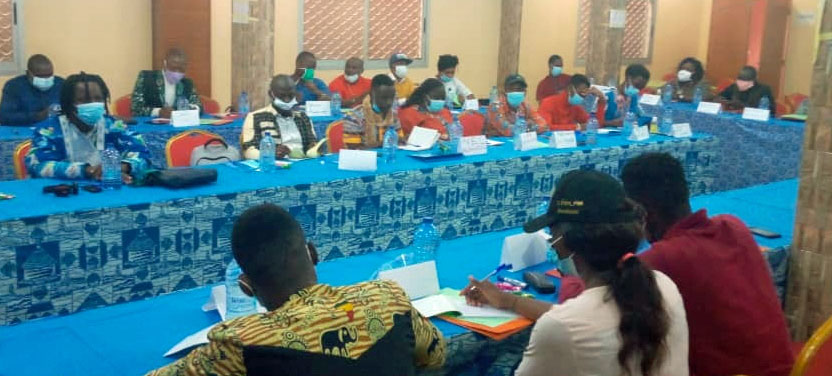Cameroon’s human rights watchdog group is pushing to improve the security of the nation’s LGBTI people and their advocates, who last year were the victims of 1,320 cases of violence and human rights abuses.

Logo of the Unity platform, the human rights watchdog project run by Cameroonian LGBTI activists.
By Courtney Stans
Last month, Cameroon’s Unity human rights watchdog project and its partners organized a five-day workshop devoted to creating a national security plan for LGBTI people and their defenders.
The initiative was a response to the nation’s high level of homophobic violence — 1,320 cases of anti-LGBTI violence and human rights abuses recorded last year by the LGBTI advocacy organizations Alternatives-Cameroon and Humanity First Cameroon.
Representatives of the 34 organizations of the Unity platform gathered in Yaoundé for the workshop from Aug. 24 to 28.
Through group discussions and interviews, the workshop focused on violence against particular groups, including transgender people, lesbians and gays, and in various regions. Participants took into account various causes of violence in traditionally English-speaking western Cameroon, the seat of political institutions in Yaoundé, and Muslim-majority northern Cameroon.
The activists outlined six responses to incidents of violence:
- Collection of information,
- Investigation or analysis,
- Communication with the Unity platform for coordination,
- Intervention,
- Monitoring / evaluation and
- Documentation.

Representatives of the 34 organizations of the Unity human rights watchdog group gathered Aug. 24 to 28 in Yaoundé to develop security plans for LGBTI people and organizations in Cameroon.
The plans developed during the workshop focus on both physical and digital security of human rights defenders, of LGBTI citizens and of LGBTI advocacy organizations. They include information about which organizations will intervene when violence and violations occur.
Among the recommended security measures are:
- Avoiding late-night travel with unknown people,
- Informing LGBTI people about their rights and duties in society,
- Avoiding discussions with strangers on sensitive subjects.
- Using passwords on computers.
- Removing sensitive messages and images from mobile phones.
- Avoiding unsecured areas and random visits.
This plan will serve as a model and inspiration for each LGBTI organization to build on in developing its own security plans adapted to its particular context.
Courtney Stans, the author of this article, is a Cameroonian journalist who writes under a pseudonym. Contact her at [email protected].
COMMENTS